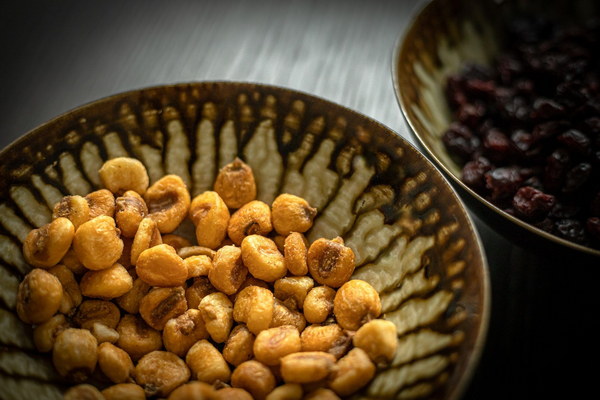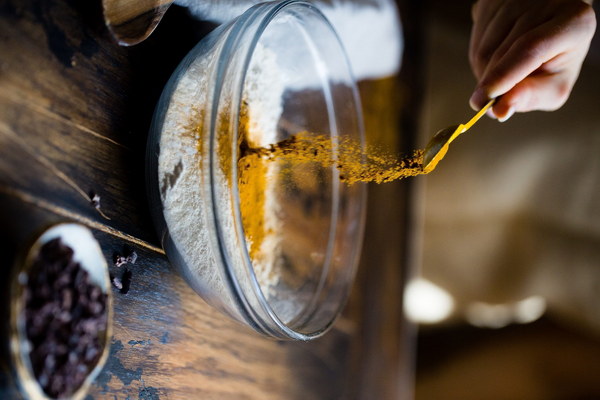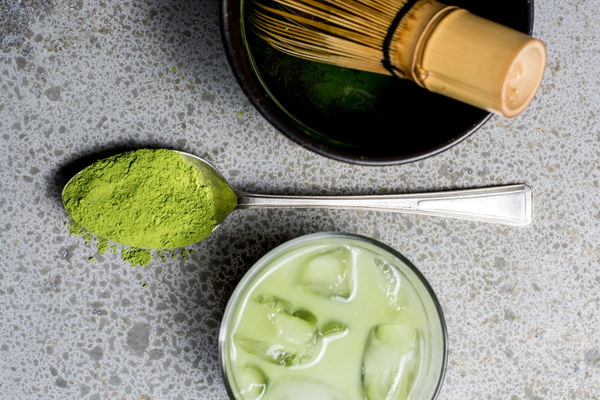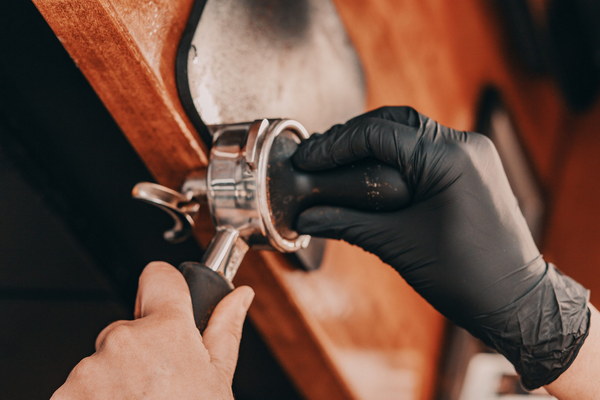Revitalize Your Digestive System The Power of Traditional Chinese Herbs in Digestive Tea
In the fast-paced world we live in, taking care of our digestive health often takes a backseat. However, a healthy digestive system is essential for our overall well-being. One effective way to support digestive health is by incorporating traditional Chinese herbs into your daily routine. This article explores the benefits of using Chinese herbs in a digestive tea and how it can help revitalize your gastrointestinal system.
Chinese medicine has been practiced for thousands of years, and its focus on balancing the body's energy, or Qi, has made it a popular choice for treating a wide range of health issues, including digestive disorders. Many of the herbs used in Chinese medicine have been shown to have beneficial properties for the gut, making them perfect ingredients for a digestive tea.
Here are some of the most commonly used Chinese herbs in digestive tea:
1. Chuan Xiong (Ligusticum chuanxiong): This herb is known for its ability to improve blood circulation and relieve pain. It is often used to treat conditions such as stomachache, bloating, and menstrual cramps.
2. Bai Zi Ren (Semen coicis): Also known as coix seed, this herb has diuretic, anti-inflammatory, and antiviral properties. It is commonly used to treat edema, diarrhea, and abdominal pain.
3. Fu Ling (Poria cocos): Known for its ability to absorb excess moisture, this herb is excellent for treating conditions such as constipation, diarrhea, and edema.
4. Ban Xia (Rhizoma pinelliae): This herb is often used to treat stomachaches, bloating, and nausea. It helps to break down food and reduce the accumulation of phlegm in the stomach.
5. Gan Cao (Licorice root): This herb is a staple in Chinese medicine and is known for its ability to balance the body's Yin and Yang energies. It can help reduce inflammation, alleviate pain, and improve overall digestion.
6. Ju Hua (Chrysanthemum flower): This herb has a cooling effect on the body and is often used to treat heat-related conditions, such as constipation, red eyes, and headaches.
7. Huang Qi (Astragalus root): Known for its immune-boosting properties, this herb can help improve your body's defense against infections and support overall health.
When preparing a digestive tea, you can combine these herbs in various ratios to create a customized blend that suits your specific needs. Here's a basic recipe to get you started:

Digestive Tea Recipe:
- 1 teaspoon of Chuan Xiong
- 1 teaspoon of Bai Zi Ren
- 1 teaspoon of Fu Ling
- 1 teaspoon of Ban Xia
- 1 teaspoon of Gan Cao
- 1 teaspoon of Ju Hua
- 1 teaspoon of Huang Qi
Instructions:
1. Combine all the herbs in a pot.
2. Pour 2 cups of boiling water over the herbs.
3. Steep for 10-15 minutes, then strain the mixture.
4. Enjoy the warm tea twice a day, before meals.
In addition to improving digestion, a digestive tea made with Chinese herbs can offer several other health benefits, including:
- Enhanced Immune System: Many of the herbs used in this tea have immune-boosting properties, helping to protect your body from infections and diseases.
- Improved Sleep Quality: The calming effects of certain herbs, such as Gan Cao, can help you relax and improve your sleep quality.
- Increased Energy: A healthy digestive system is essential for nutrient absorption and energy production, so a digestive tea can help increase your overall energy levels.
- Weight Management: By improving digestion, a digestive tea can help you better manage your weight by reducing bloating and promoting healthy bowel movements.
Incorporating a digestive tea made with Chinese herbs into your daily routine can help revitalize your gastrointestinal system and improve your overall health. Remember to consult with a healthcare professional before starting any new herbal treatment, especially if you have underlying health conditions or are taking medication.









